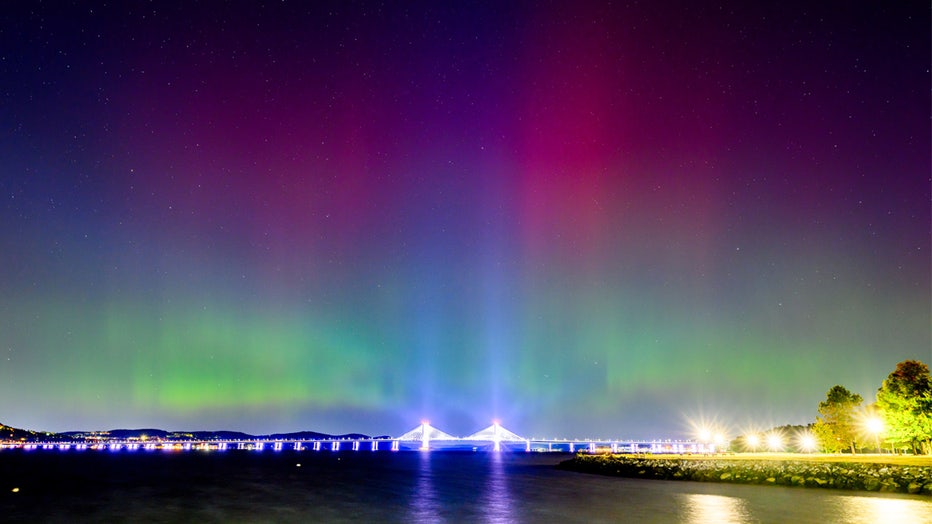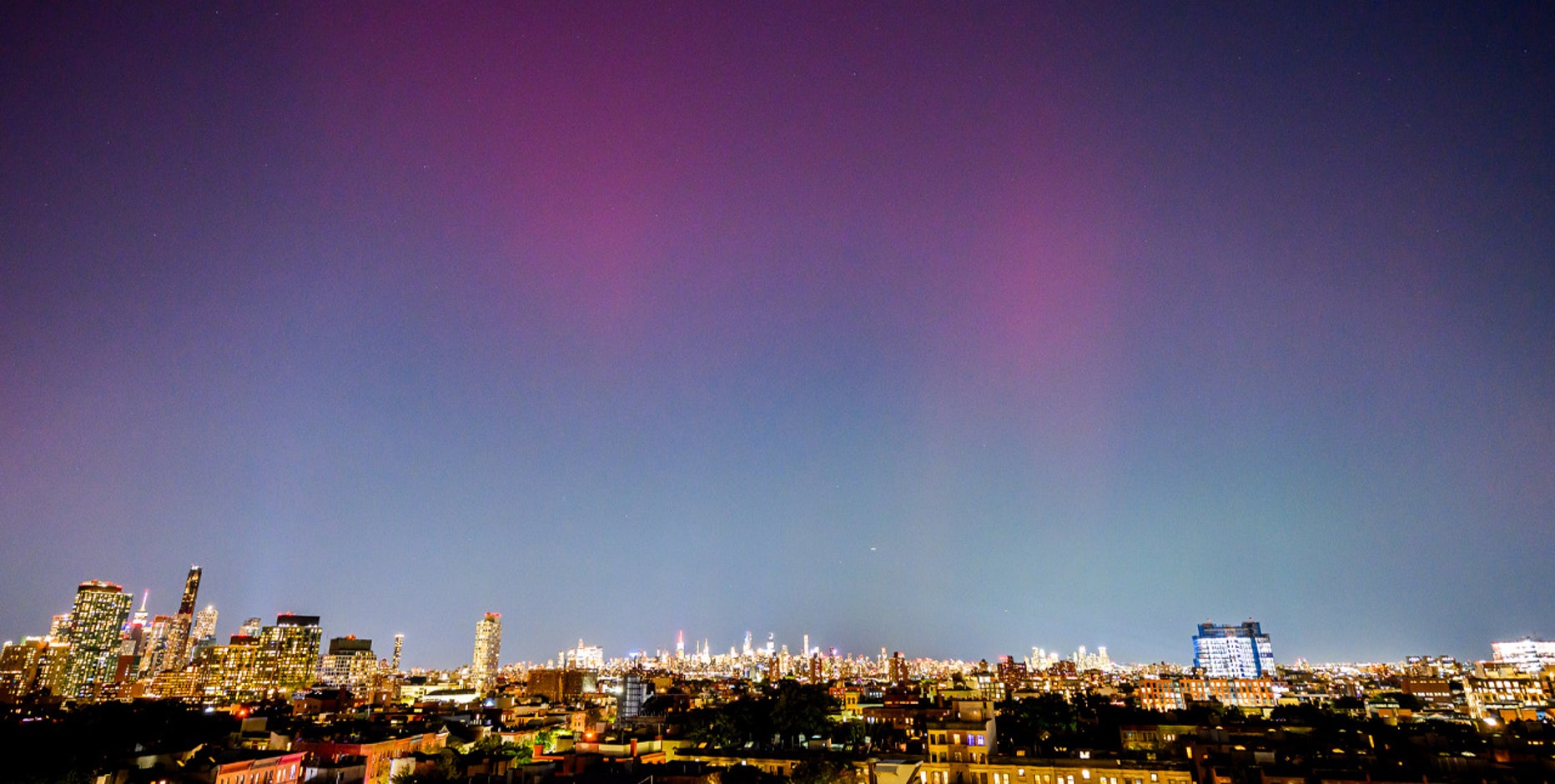Northern Lights forecast, viewing tips tonight for NYC

Will the northern lights dazzle our skies tonight?
Will the aurora borealis, or northern lights return to our skies tonight for another dazzling display? FOX 5's Nick Gregory has the story.
NEW YORK CITY - Are we in store tonight for more Northern Lights in NYC?
On Thursday night, another in a series of unusually strong solar storms hitting Earth produced stunning skies full of pinks, purples, greens and blues farther south than normal, including parts of New York City, New Jersey and Connecticut.
NORTHERN LIGHTS TONIGHT NYC: WHAT TIME TO LOOK UP?
The U.S. National Oceanic and Atmospheric Administration issued a severe geomagnetic storm alert on Wednesday after after an outburst from the sun was detected earlier in the week.
Featured
Will we see the Northern Lights again tonight in NYC?
Did you see the Northern Lights last night in NYC? If you missed the show, keep your eyes peeled tonight, as there's a chance for more celestial fireworks across NY, NJ and CT. Here's what you need to know.
Such a storm increases the chance of auroras, also known as northern lights, and can temporarily disrupt power and radio signals.
Will I be able to see the Northern Lights tonight?
If you missed the show, keep your eyes peeled tonight, as there's a chance for more celestial fireworks.
Best places to see the Northern Lights
NOAA's forecast for tonight shows continued higher-than-normal activity, but the chances for another overnight show are slim farther south of Canada and the northern Plains states.

Northern Lights forecast (NOAA)
What time will the Northern Lights be visible tonight?
NOAA advises those who hope to see the northern lights to get away from city lights.
The best viewing time is usually within an hour or two before or after midnight.
Were the Northern Lights visible last night?
Residents across New York, New Jersey and Connecticut were treated to a celestial spectacle as the aurora borealis illuminated above the city’s skyline.
Featured
Northern Lights illuminates NYC, NJ sky: Did you see it?
Skies across the northeast were lit up by a rare aurora borealis on Thursday night thanks a geomagnetic storm, delighting stargazers.
The aurora was reportedly visible across several northern states and even parts of the Midwest.
What causes northern lights?
The sun sends more than heat and light to Earth — it sends energy and charged particles known as the solar wind. But sometimes that solar wind becomes a storm. The sun's outer atmosphere occasionally "burps" out huge bursts of energy called coronal mass ejections. They produce solar storms, also known as geomagnetic storms, according to NOAA.
The Earth's magnetic field shields us from much of it, but particles can travel down the magnetic field lines along the north and south poles and into Earth’s atmosphere.
When the particles interact with the gases in our atmosphere, they can produce light — blue and purple from nitrogen, green and red from oxygen.
Why have there been so many solar storms lately?
Solar activity increases and decreases in a cycle that last about 11 years, astronomers say. The sun appears to be near the peak of that cycle, known as a solar maximum. It's not clear exactly when the cycle will begin to slow.

IRVINGTON, NEW YORK - OCTOBER 11: The Northern Lights or Aurora Borealis are visible over the Tappan Zee or Governor Mario M. Cuomo Bridge Bridge on October 11, 2024 near New York City. (Photo by Roy Rochlin/Getty Images)
In May, the sun shot out its biggest flare in almost two decades. That came days after severe solar storms pummeled Earth and triggered auroras in unaccustomed places across the Northern Hemisphere.
Northern Lights hurricanes
Meanwhile, the Space Weather Prediction Center has been in contact with FEMA and state agencies involved in disaster recovery efforts because these storms could impact ongoing work across the Southeast from Hurricanes Milton and Helene.
Geomagnetic storms and radiation from the Sun can affect the power grid, as well as GPS and radio blackouts and impacts on satellites.
"This storm could impact ongoing recovery efforts for Hurricanes Helene and Milton in several critical ways," the SPWC said.
NOAA Space Weather Prediction Center
For more information, click HERE.




